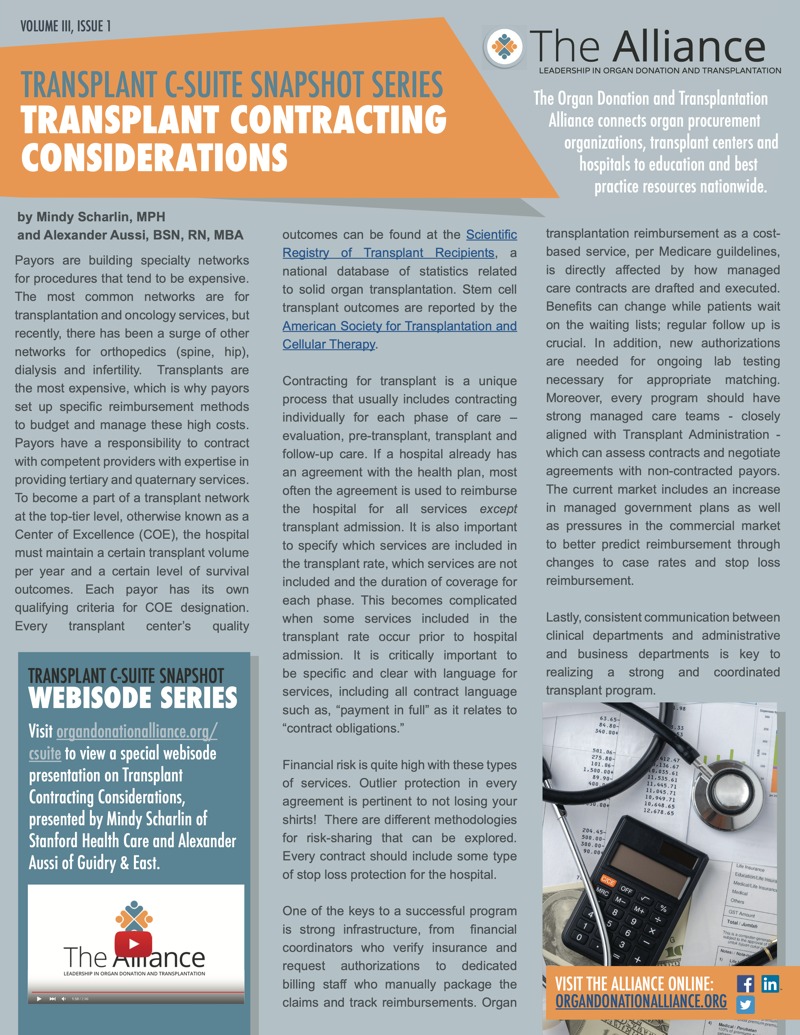Payors are building specialty networks for procedures that tend to be expensive. The most common networks are for transplantation and oncology services, but recently, there has been a surge of other networks for orthopedics (spine, hip), dialysis and infertility.
Managing the high costs
Transplants are the most expensive, which is why payors set up specific reimbursement methods to budget and manage these high costs.
Payors have a responsibility to contract with competent providers with expertise in providing tertiary and quaternary services. To become a part of a transplant network at the top-tier level, otherwise known as a Center of Excellence (COE), the hospital must maintain a certain transplant volume per year and a certain level of survival outcomes. Each payor has its own qualifying criteria for COE designation. Every transplant center’s quality outcomes can be found at the Scientific Registry of Transplant Recipients, a national database of statistics related to solid organ transplantation. Stem cell transplant outcomes are reported by the American Society for Transplantation and Cellular Therapy.
A Unique Process
Contracting for transplant is a unique process that usually includes contracting individually for each phase of care – evaluation, pre-transplant, transplant and follow-up care. If a hospital already has an agreement with the health plan, most often the agreement is used to reimburse the hospital for all services except transplant admission. It is also important to specify which services are included in the transplant rate, which services are not included and the duration of coverage for each phase. This becomes complicated when some services included in the transplant rate occur prior to hospital admission. It is critically important to be specific and clear with language for services, including all contract language such as, “payment in full” as it relates to “contract obligations.”
Financial risk is quite high with these types of services. Outlier protection in every agreement is pertinent to not losing your shirts! There are different methodologies for risk-sharing that can be explored. Every contract should include some type of stop loss protection for the hospital.
One of the keys to a successful program is strong infrastructure, from financial coordinators who verify insurance and request authorizations to dedicated billing staff who manually package the claims and track reimbursements. Organ transplantation reimbursement as a cost-based service, per Medicare guidelines, is directly affected by how managed care contracts are drafted and executed.
Benefits can change while patients wait on the waiting lists; regular follow up is crucial. In addition, new authorizations are needed for ongoing lab testing necessary for appropriate matching. Moreover, every program should have strong managed care teams – closely aligned with Transplant Administration which can assess contracts and negotiate agreements with non-contracted payors. he current market includes an increase in managed government plans as well as pressures in the commercial market o better predict reimbursement through changes to case.






